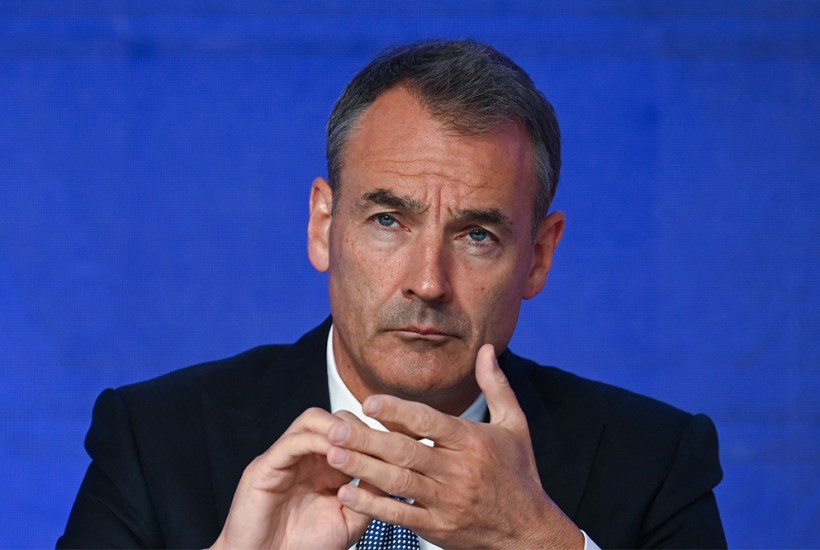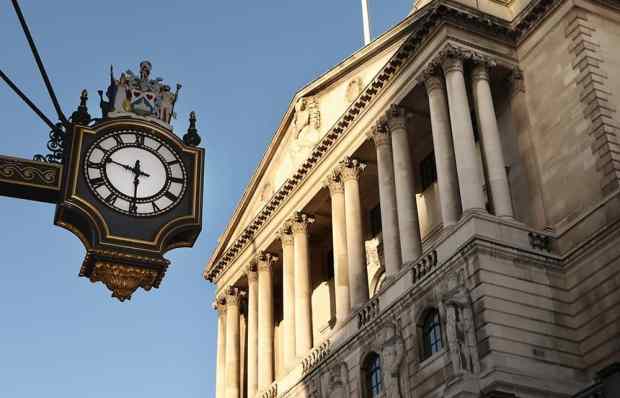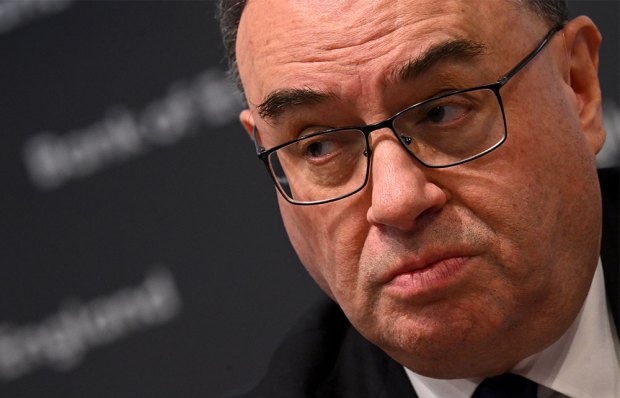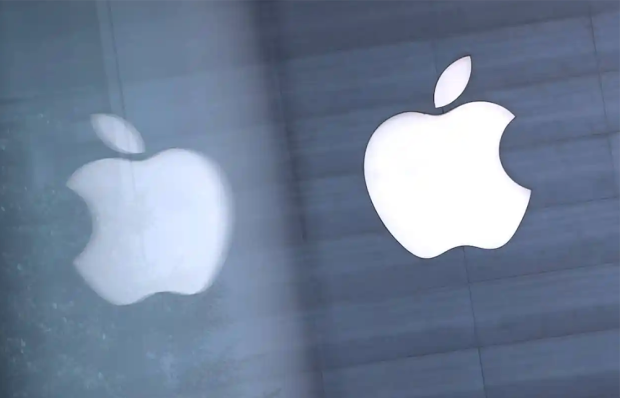Bernard Looney, the fallen BP chief, always had a certain swagger about him. I’ve no idea whether he was unsafe in taxis, but he was certainly prone to unguarded remarks.
‘Not every barrel of oil in the world will get produced’ was a bold way, back in 2018, to introduce BP shareholders to the idea that the world’s energy giants will one day have to strand remaining carbon assets if they really intend to achieve net-zero targets. ‘This is literally a cash machine’ was not the best way to describe BP’s profit performance in November 2021, when British households were beginning to feel the pain of soaring energy bills.
And Looney tempted fate when he told an interviewer in February last year: ‘Those days where the boss was the hero… and just seemed impervious to anything… I think those days are over.’ They are for him at BP, after admitting he had not been ‘fully transparent’ in disclosing details of past personal relationships with colleagues. In doing so, he joins the likes of Tony Danker of the CBI and the former Tesco chairman John Allen, who also left their posts after being accused of crossing a zero-tolerance line in ‘workplace conduct’.
Without presuming to judge, I’m inclined to think these three cases fall some distance from the alleged sins of the latest headline-making celebrity sex pest. Yet all are subject to today’s relentless media mix of censoriousness and prurience which makes companies ever more fearful of reputational damage. If that encourages more careful collegiate behaviour but occasionally knocks strategies awry and sends shares diving – BP’s market capitalisation dropped £2 billion on Looney’s departure – so be it. While the mood lasts, every FTSE board should keep a script and a succession plan to hand for when scandal strikes.
We’ve entered a new age that has echoes of an old one. My best advice to any new chief executive is to read Robert Harris’s Act of Oblivion for a glimpse of the ironclad self-righteousness of 17th-century Puritans.
London’s loss
Wall Street is hugging itself at the successful flotation on the Nasdaq exchange of Arm, the British microchip designer whose owner, SoftBank of Japan, shunned all pleas – even from Rishi Sunak – to bring the listing to London. Arm’s $60 billion valuation means SoftBank founder Masayoshi Son has notionally doubled what he paid for Arm in 2016. But he still controls 90 per cent of it, while among the new shareholders are a set of anchor investors who are also long-term Arm customers, ranging from Apple to Intel and Taiwan Semiconductor – and every major investment fund on both sides of the Atlantic will also want a slice of this blue-chip of global tech.
Underwriting banks led by Barclays, Goldman Sachs, JP Morgan and Mizuho share more than $100 million between them and hope the benchmark deal ends a two-year drought in New York IPOs. British audit and legal firms will also have collected handsome fees, but London as a whole can only look on in chagrin, wondering whether, if given the chance, it could have delivered as good a result.
Off the road
Car insurance has gone mad. I drive a six-year-old Audi Q5, known to me as ‘the fat cruiser’. Last year, its comprehensive cover by ABC, a subsidiary of Liverpool Victoria, cost £396; the year before, £379. This year, the first quote via a broker I’ve used for decades was from Aviva – at £1,587. Surely some mistake? No, says the broker, private car insurance has skyrocketed in response to increased claims and repair costs. When I confessed to six speeding points, my quote went up to £1,827.
But Confused.com offered plenty of alternatives: as low as £713 (from a company called Marshmallow that specialises in ‘expats and migrants’) up to £5,000-plus from several firms that must think I’m a motoring maniac. Aviva’s online offer, wildly undercutting its own broker-fed quote, looked competitive at £894.
How is this possible? The cost of repairs has risen by a third in a year; my £396 last year would barely have paid to respray a single body panel. And write-offs have become more expensive because second-hand values are high (I’m told the Audi is still worth what I paid for it in 2020) because new car production has been low. Meanwhile, it turns out the whole motor insurance sector has been piling up losses for years – except during Covid, when drivers stayed off the roads.
None of which justifies quadrupling my premium. It’s also the case that older drivers like me are penalised – supposedly because we keep backing into bollards in supermarket car parks. But really, I suspect, it’s because we’re the ones who keep paying the premiums, even at these prices, while the bad boys race their souped-up Subarus un-insured. This whole story whiffs of ‘greedflation’ as well as clawback from years of ill-judged underpricing to buy market share. My best choices, it seems, are to prang the fat cruiser and hope for a write-off – or trade it in for an e-bike.
My private train
I don’t know why everyone laughs at Kim Jong-un’s private train. If I were rich and powerful, I’d be proud to own a bespoke set of railway carriages, whatever they cost to insure. Not needing heavy armour, mine would be faster and sleeker than the North Korean dictator’s: I’m picturing a shortened Class 374 Eurostar, handy for direct access to the continent but refitted with a dining car replicating the long table of London’s Beefsteak Club.
To adapt an old joke, the catering crew would be French, the mechanics would be German and the Swiss drivers would never have heard of Aslef. But given that we’d be forever at the mercy of network chaos, the on-board apologist for delays and diversions would be a phlegmatic, flat-vowelled veteran from Transpennine Express.
Got something to add? Join the discussion and comment below.
Get 10 issues for just $10
Subscribe to The Spectator Australia today for the next 10 magazine issues, plus full online access, for just $10.
You might disagree with half of it, but you’ll enjoy reading all of it. Try your first month for free, then just $2 a week for the remainder of your first year.















Comments
Don't miss out
Join the conversation with other Spectator Australia readers. Subscribe to leave a comment.
SUBSCRIBEAlready a subscriber? Log in